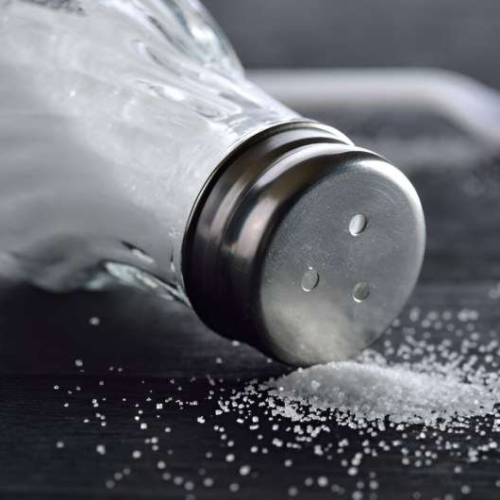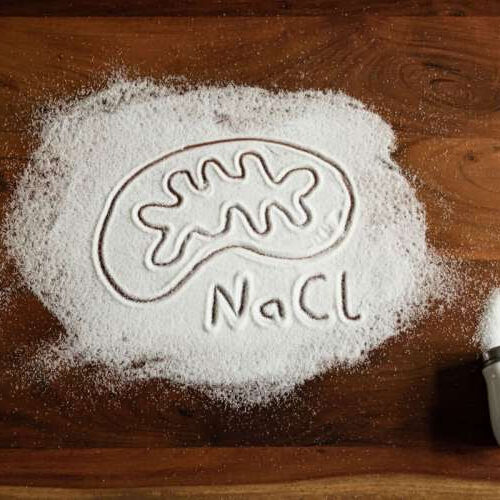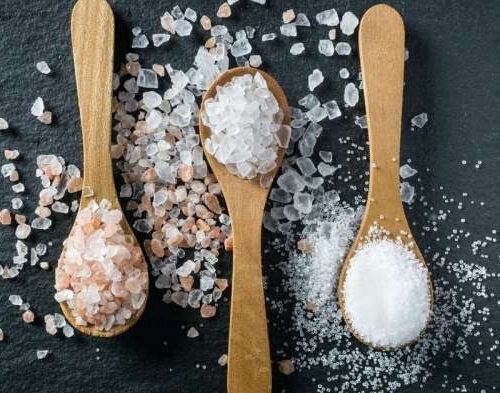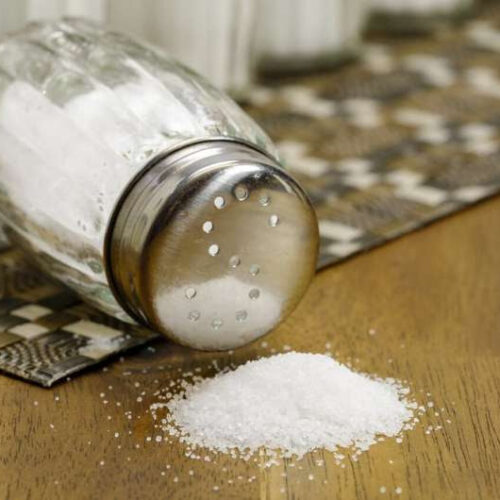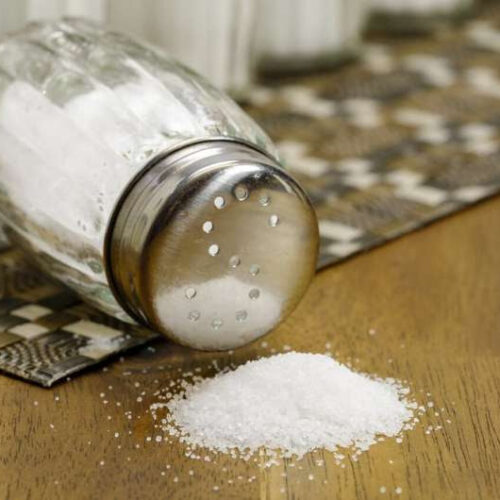Marcia Frellick February 19, 2025 13377 A teaspoon of salt. This is the amount of sodium that US dietary guidelines recommend that people consume a day. Yet salt consumption is often higher than the recommended amount. The progression of evidence about the effect of salt on cardiovascular health has marched forward from studies showing a reduction in...
Tag: <span>salt</span>
Frequency of adding salt to foods linked to higher risk for CKD
by Elana Gotkine A higher self-reported frequency of adding salt to foods is associated with a higher risk for chronic kidney disease (CKD) in the general population, according to a study published online Dec. 28 in JAMA Network Open.Rui Tang, M.P.H., from Tulane University in New Orleans, and colleagues examined the association of self-reported frequency...
Study finds that salt cuts off the energy supply to immune regulators
by Max Delbrück Center for Molecular Medicine Salt disrupts the function of immune regulators (Tregs): Their mitochondria temporarily produce less energy, thus altering cellular metabolism. Credit: Felix Petermann, Max Delbrück Center Eating too much salt, which is common in many Western societies, is not only bad for our blood pressure and cardiovascular system—it could also...
What Is the Healthiest Salt for You?
Sharica Brookins, MD February 28, 2022 When we refer to “regular table salt,” it is most commonly in the form of sodium chloride, which is also a major constituent of packaged and ultraprocessed foods. Sharica Brookins, MD The best approach to finding the “healthiest salt” — which really means the lowest in sodium — is to look...
Two surprising reasons behind the obesity epidemic: Too much salt, not enough water
by Richard Johnson, The Conversation Credit: Pixabay/CC0 Public Domain Scientific studies and media coverage are rife with warnings on how sugar, carbohydrates, saturated fat and lack of exercise contribute to obesity. And tens of millions of Americans are still overweight or obese in large part because of the classic Western diet and lifestyle. As an educator, researcher and professor of medicine, I have spent more than 20...
Remind me again, why is salt bad for you?
by Evangeline Mantzioris, The Conversation Credit: Shutterstock Despite most of us knowing we should cut down on salt, Australians consume on average almost twice the recommended daily maximum per day. Salt has been used in food preservation for centuries, and idioms like “worth your weight in salt” indicate how valuable it was for preserving food to ensure survival. Salt...
Researchers reveal surprising findings on how salt affects blood flow in the brain
by Georgia State University Credit: CC0 Public Domain A first-of-its-kind study led by researchers at Georgia State reveals surprising new information about the relationship between neuron activity and blood flow deep in the brain, as well as how the brain is affected by salt consumption. When neurons are activated, this typically produces a rapid increase of blood flow to the area....
Is salt good for you after all? The evidence says no
by Clare Collins, The Conversation Credit: CC0 Public Domain Salt is the most common form of sodium and is added to food during manufacturing, home cooking or at the table to enhance the taste or to extend the shelf life. Most people have heard the advice to cut down on salt. That’s because high sodium intakes are associated with...
Rice chemists identify hidden aspects of protein-separation process to simplify drug manufacture
HOUSTON – (Oct. 28, 2019) – With a lot of hard work and a dash of salt, Rice University scientists have taken a step toward simplifying drug manufacture. Rice chemist Christy Landes and her colleagues reported in the Proceedings of the National Academy of Sciences their strategy to make polymer membrane-based separation of proteins more efficient. “It...
Salt helps proteins move on down the road
With a lot of hard work and a dash of salt, Rice University scientists have taken a step toward simplifying drug manufacture. Rice chemist Christy Landes and her colleagues reported in the Proceedings of the National Academy of Sciences their strategy to make polymer membrane-based separation of proteins more efficient. “It costs about $3 billion...
- 1
- 2

